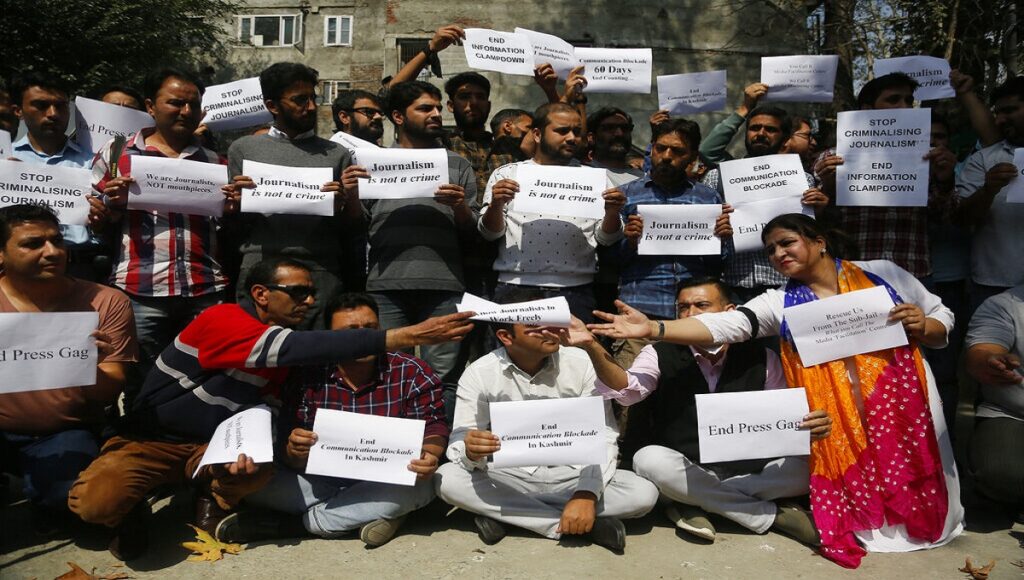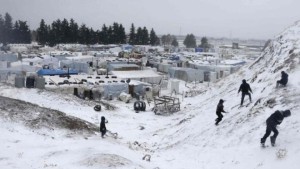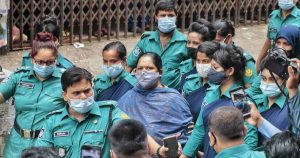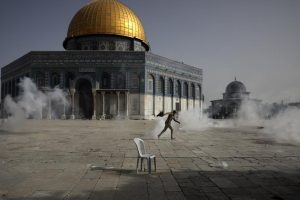New Delhi, Oct 3 (AP/UNB) — Dozens of journalists in Indian-controlled Kashmir held a sit-in protest Thursday against an ongoing communication blackout in the disputed Himalayan region, describing the blockade of the internet and mobile phones as a government-imposed gag.
The journalists, holding placards and wearing black bands, said the government was muzzling the press in the region and demanded that the internet and mobile connectivity be restored.
A joint statement issued by 11 Kashmir-based journalists’ associations read: “How long can the journalists of Valley rely solely on official releases and occasional press briefings that have always been a one-way communication?”
For the last two months, mobile phone and internet services have been shut down in Indian-controlled Kashmir after New Delhi stripped the region of its semi-autonomous powers and implemented a strict clampdown. It has sent tens of thousands of extra troops to the region and detained thousands of people.
The authorities have said they have restored landline phones but have remained silent on when the mobile phones and the internet would be up and running.
On Oct. 1 the India government challenged a petition filed by a Kashmir journalist on curbs on the media in Kashmir, saying there are no restrictions on the movement of journalists in the region.
“Regular press briefings and press releases are being organized to disseminate information,” the government said in a counter-affidavit filed against the petition.
Authorities have set up a make-shift media communication center for journalists at a private hotel in Srinagar, the region’s main city. The information department managing the center has allotted 15 minutes for each journalist to access the internet.
The internet blockade has also affected media operations in the region and most newspapers published from Srinagar have been unable to update their online editions since Aug. 5, the date New Delhi stripped the region of its special powers.
Foreign journalists have been denied permission to visit the Himalayan region.
Earlier, The Kashmir Press Club, an elected body of journalists in Kashmir, had taken up the issue with the authorities and asked that mobile and internet services be restored for journalists.
UN human rights chief Michelle Bachelet said last month she was “deeply concerned” about the situation in the region.
The conflict over Kashmir began in late 1940s, when India and Pakistan won independence from the British empire and began fighting over their rival claims.
Since 1989, a full-blown armed rebellion has raged in Indian-controlled Kashmir seeking a united Kashmir — either under Pakistani rule or independent of both countries. About 70,000 people have been killed in the uprising and an Indian military crackdown.
India accuses Pakistan of training and arming the rebels, a charge Islamabad denies.




